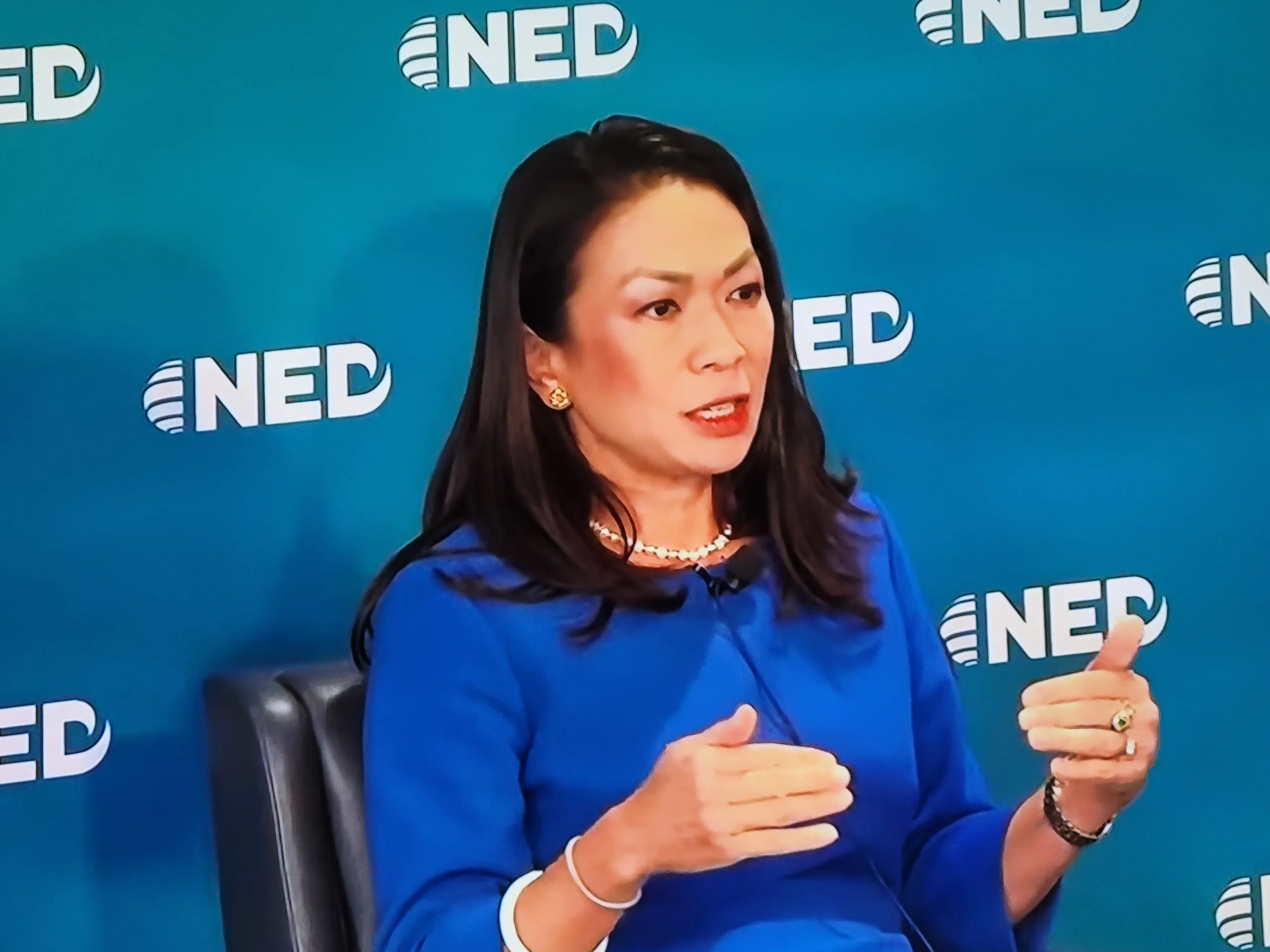Benedict Rogers’s book, The China Nexus: Thirty Years In and Around the Chinese Communist Party’s Tyranny (Optimum Publishing, 2022), traces different aspects of the Chinese Communist Party’s (CCP) mounting repression. It is a sobering and, at times, terrifying account of the myriad rights abuses in the People’s Republic of China (PRC), with chapters on the PRC’s harsh treatment of human rights defenders, Christians, Hong Kong protestors, Falun Gong practitioners, North Korean refugees, as well as ethnic Tibetans and Uyghurs.
Yet the chapter on the atrocities against the Uyghur population, even among other tragedies, is particularly haunting. It opens with the words, “Son, they are taking me,” the last words spoken by Uyghur advocate Kuzzat Altay’s father before being detained; many Uyghurs have been sent to camps and face other abuses, including lack of freedom of movement and privacy. Mr. Rogers not only details the types of violations faced by non-Han ethnic groups in China, particularly ethnic Uyghurs and Tibetans, but also the Chinese government’s harassment, monitoring and detention of dissenting views. He complements the chapters on those suffering under PRC repression with chapters on the PRC’s complicity with Myanmar’s crimes against humanity and a chapter on how the CCP props up the Kim regime in North Korea, underscoring how the CCP’s authoritarian rule reaches beyond China. He also includes a chapter on Taiwan, laying out a case for why the world should not allow Taiwan to come under CCP rule.
Mr. Rogers’s background as a journalist lends readability to the text and his previous work as an advocate grants him access to content that is gripping as he chronicles the pervasive violations under Xi Jinping. While the abuses he describes can be hard to comprehend, the book is not exaggerated and the human rights abuses he describes are corroborated by other sources, including reporting by civil society organizations, academics, foreign governments and international organizations. He relies on dozens of interviews to help paint a comprehensive record of life under totalitarian CCP rule that is both credible and poignant in The China Nexus. Mr. Rogers does an excellent job of balancing explanations for patterns of the PRC’s repression, including the historical context of CCP rule in Tibet and the Uyghur region, with vignettes from people who have been directly affected by the CCP’s harsh rule.
Aside from mapping China’s rights abuses, the book also chronicles Mr. Rogers’s career and experience with China, Myanmar, and North Korea. For those familiar with China, the descriptions of his early career will evoke nostalgia for a time when China was merely authoritarian rather the totalitarian rule that now characterizes CCP rule. It kindled my own fond memories of the initial years of my career in the early 2000s when the PRC was tolerating limited forms of dissent, experimenting with village elections, and improving aspects of respect for individual rights, such as introducing some safeguards for the criminally accused, and there was a glimmer of hope that these initial reforms might blossom into something more significant.
The book also provides a glimpse into Mr. Rogers’s activism—from his personal involvement and commitment to generating momentum for initiatives such as the Uyghur Tribunal to his advocacy on behalf of jailed Hong Kongers. It also conveys something about Mr. Rogers’s courage in his work as a human rights advocate, from sitting on the board of the UK-based NGO Stop Uyghur Genocide to his role as co-founder and Chief Executive of Hong Kong Watch. Despite being denied entry into Hong Kong in 2017, facing Chinese government harassment in the United Kingdom, including PRC government letters to his neighbors and mother, he remains undeterred in speaking out. Mr. Rogers decades-long record of advocacy also provides him with meaningful access to key interview subjects, ranging from North Korean refugees to escaped Hong Kong activists.
The book’s greatest strengths include acknowledging and describing the handful of acts of terrorism by Uyghurs and debunking the Chinese government’s narrative that its policies, including forced sterilization, mass and arbitrary detention, and forced labor, are effective counter-terrorism measures. Mr. Rogers started his career in Hong Kong, where he worked as a journalist, and the chapter on Hong Kong shows his mastery of the developments in that city. He also rightly uses the chapter on Myanmar to point to the hypocrisy of Beijing’s claim to adhere to “non-interference,” noting that China regularly and persistently interferes in Myanmar’s internal conflicts. Readers should be aware that he also rightly includes some harrowing accounts, including of torture and organ harvesting, that at times are difficult to read. Interwoven with these tales of oppression are examples of Chinese brave enough to speak out as well as their allies in the international community, like former Canadian Senator De Nino and U.S. Representative Chris Smith. However, it is the dedication and commitment of those who have endured the CCP’s repression and advocate for those still in China—even at the risk of their own personal well-being—that will leave the reader most inspired.






